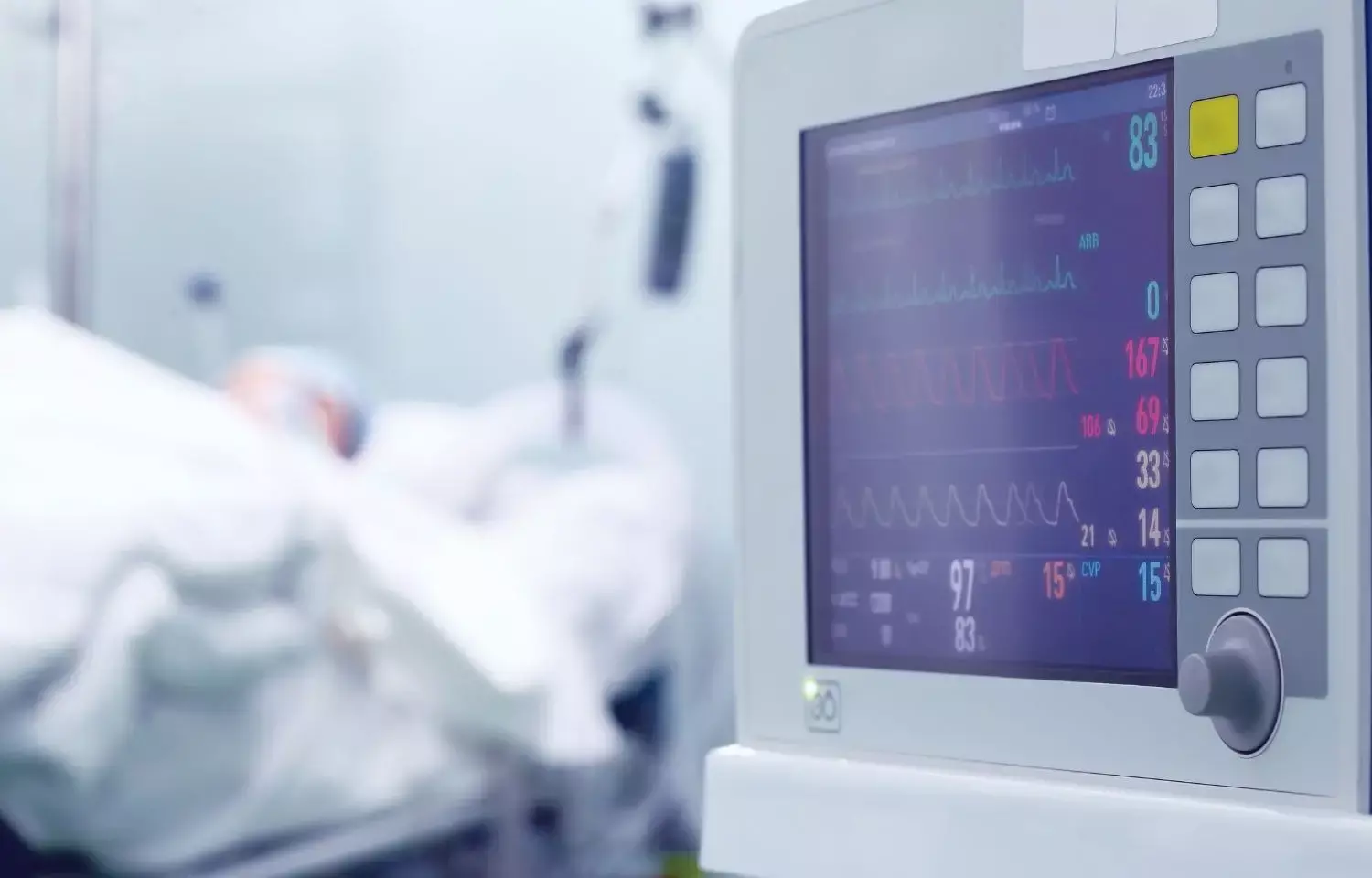- Home
- Medical news & Guidelines
- Anesthesiology
- Cardiology and CTVS
- Critical Care
- Dentistry
- Dermatology
- Diabetes and Endocrinology
- ENT
- Gastroenterology
- Medicine
- Nephrology
- Neurology
- Obstretics-Gynaecology
- Oncology
- Ophthalmology
- Orthopaedics
- Pediatrics-Neonatology
- Psychiatry
- Pulmonology
- Radiology
- Surgery
- Urology
- Laboratory Medicine
- Diet
- Nursing
- Paramedical
- Physiotherapy
- Health news
- Fact Check
- Bone Health Fact Check
- Brain Health Fact Check
- Cancer Related Fact Check
- Child Care Fact Check
- Dental and oral health fact check
- Diabetes and metabolic health fact check
- Diet and Nutrition Fact Check
- Eye and ENT Care Fact Check
- Fitness fact check
- Gut health fact check
- Heart health fact check
- Kidney health fact check
- Medical education fact check
- Men's health fact check
- Respiratory fact check
- Skin and hair care fact check
- Vaccine and Immunization fact check
- Women's health fact check
- AYUSH
- State News
- Andaman and Nicobar Islands
- Andhra Pradesh
- Arunachal Pradesh
- Assam
- Bihar
- Chandigarh
- Chattisgarh
- Dadra and Nagar Haveli
- Daman and Diu
- Delhi
- Goa
- Gujarat
- Haryana
- Himachal Pradesh
- Jammu & Kashmir
- Jharkhand
- Karnataka
- Kerala
- Ladakh
- Lakshadweep
- Madhya Pradesh
- Maharashtra
- Manipur
- Meghalaya
- Mizoram
- Nagaland
- Odisha
- Puducherry
- Punjab
- Rajasthan
- Sikkim
- Tamil Nadu
- Telangana
- Tripura
- Uttar Pradesh
- Uttrakhand
- West Bengal
- Medical Education
- Industry
Glycemic gap increases mortality risk in critically ill diabetes patients: Study

China: An article published in the Journal of Intensive Care Medicine states that Glycemic Gap is independently associated with an increased risk of mortality in critically ill diabetic patients. ICU mortality outcomes can be improved by controlling and maintaining blood glucose levels close to outpatient/baseline levels.
A glycemic gap is a marker of glycemic excursion in patients with diabetes admitted to ICU and can be used to predict adverse outcomes in such patients.Dysglycemia( any abnormalities in blood glucose levels) is associated with poor outcomes in critically ill patients but this is uncertain in diabetic patients in regards to glucose control before hospitalization.
A research team consisting of Ran Lou, Xuanwu Hospital Capital Medical University, China, and colleagues investigated the effect of the difference between the level of blood glucose during ICU stay and before admission to ICU on the outcomes of critically ill patients with diabetes.
431 patients were included in this retrospective observational cohort study that evaluated the impact of glycemic control in the critical care setting compared with baseline control and its impact on mortality. Patients were divided into survival groups and nonsurvival groups according to survival or not at 28-day, and the relationship between GAP and mortality was analyzed.
The glycemic gap means (GAPmean) was calculated as the mean glucose level within the first 7 days after admission to the ICU compared with A1c-derived average glucose (ADAG), and the glycemic gap-admission (GAPadm) was calculated as the difference between admission blood glucose and ADAG.
Study results showed that,
• Both the groups had a comparable level of HbA1c, the nonsurvivors had greater APACHE II, SOFA, GAPadm, GAPmean, and higher MH(moderate hypoglycemia) and SH(severe hypoglycemia) incidences.
• The nonsurvival group showed less duration of ventilator-free, non-ICU stay and a longer duration of renal replacement therapy(RRT)
• GAPmean had the greatest predictive power with an AUC of 0.807 and the cut-off value was 3.6 mmol/L (sensitivity 77.7% and specificity 76.6%).
• The AUC was increased to 0.852 incorporated with SOFA5 (NRI = 11.34%).
Researchers concluded that glycemic GAP between the MGL within 5 days and ADAG was independently associated with a 28-day mortality of critically ill diabetic patients. Moreover, its predictive capability was maximized with the addition of the Sequential Organ Failure Assessment (SOFA).
Reference:
Lou R, Jiang L, Wang M, Zhu B, Jiang Q, Wang P. Association Between Glycemic Gap and Mortality in Critically Ill Patients with Diabetes. Journal of Intensive Care Medicine. May 2022. doi:10.1177/08850666221101856
BDS
Dr. Hiral patel (BDS) has completed BDS from Gujarat University, Baroda. She has worked in private dental steup for 8years and is currently a consulting general dentist in mumbai. She has recently completed her advanced PG diploma in clinical research and pharmacovigilance. She is passionate about writing and loves to read, analyses and write informative medical content for readers. She can be contacted at editorial@medicaldialogues.in.
Dr Kamal Kant Kohli-MBBS, DTCD- a chest specialist with more than 30 years of practice and a flair for writing clinical articles, Dr Kamal Kant Kohli joined Medical Dialogues as a Chief Editor of Medical News. Besides writing articles, as an editor, he proofreads and verifies all the medical content published on Medical Dialogues including those coming from journals, studies,medical conferences,guidelines etc. Email: drkohli@medicaldialogues.in. Contact no. 011-43720751


